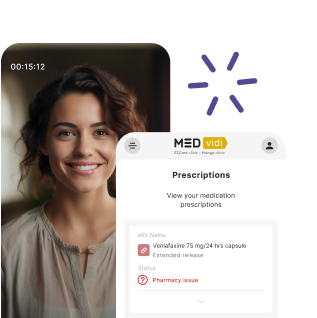Their inclusion does not guarantee they will be prescribed to any individual, as treatment decisions are ultimately at the discretion of healthcare providers. Healthcare providers may prescribe other medications or recommend non-pharmacological treatment based on the patient’s unique health circumstances and needs. Read more
Ambien has a
Highlights
- Belsomra (suvorexant) and Ambien (zolpidem) are sleep medicines prescribed by healthcare professionals for insomnia treatment.
- Although both are used to help manage sleep difficulties, they do so through distinct mechanisms. Belsomra inhibits orexin, and Ambien stimulates GABA receptors.
- Each medication has its own pros and cons. The choice of better sleep medicine for you out of these two can be best made by a qualified healthcare professional after careful evaluation.
- Note that Belsomra and Ambien may not be suitable for everyone, and your healthcare provider may prescribe another medication or suggest non-pharmacological treatments.
Insomnia is a rising health concern with approximately
Among the many sleep medications available, Belsomra and Ambien are some of the most common ones. The question you may have is “Which of these two is better?” Let’s find that out by exploring similarities, differences, and other details.

What Is Belsomra?
What Is Ambien?
Ambien contains the active ingredient zolpidem which is a
Ambien vs Belsomra: Differences
Ambien and Belsomra do share a prominent similarity being both indicated for the management of insomnia. But they are not entirely the same. Listed below are some of the differences.
|
Belsomra |
Ambien |
|
|
Availability |
Brand only |
Brand and generic |
|
Active Ingredient |
Suvorexant |
Zolpidem |
|
Drug Class |
Dual orexin receptor antagonist |
Nonbenzodiazepine sedative-hypnotic |
|
Dosage Forms & Strengths |
5, 10, 15, 20 mg oral tablets |
|
|
Approved for |
Adults |
Adults |
|
Cost |
~$550 for 30 tablets (20 mg) |
Brand: ~$770 for 30 tablets (10 mg) |
Working Mechanism
Being an orexin receptor antagonist,
On the other hand,

Dosage Forms and Generics
Ambien’s extended-release form
Dosage
Ambien is available in 5 mg and 10 mg tablets, as well as extended-release (Ambien CR) in 6.25 mg and 12.5 mg. The
Belsomra is available in 5 mg, 10 mg, 15 mg, and 20 mg tablets. A
Typical dosages are provided for informational purposes only. Please consult your healthcare provider and follow their instructions.
Cost
Ambien sold under its brand name is more expensive ($756.30 to $779.99 for 30 tablets of 10 mg) than the generic version ($27.38 to $122.74 for 30 tablets of 10 mg); coupons are available for both options. The cost of a 30-tablet supply of 20 mg Belsomra is from $531.02 to $565.32, depending on the pharmacy; coupons are also available. Some insurance plans cover these medications as well.
Is Belsomra Similar to Ambien?
Along with the same use, there are other similarities, such as:
- Federally Controlled Status: Both Belsomra and Ambien are federally controlled in the United States and classified under
Schedule IV[11] substances. This indicates that they have some potential for misuse and dependence. - Onset of Action: Both medications take approximately 30 minutes to work. Note that the onset of action may differ depending on individual factors; never exceed the prescribed dose.
- Approved Age: For adults over 18 years of age.
- Withdrawal Symptoms: Patients may experience withdrawal symptoms if they suddenly stop taking any of these medicines. It is advised to consult your healthcare provider and seek guidance before starting the tapering-off process.
- Drug Interactions: Certain medications and substances can interact with Belsomra and Ambien, such as alcohol, opioids, seizure medications, antibiotics, antifungals, benzodiazepines, SSRIs, and tricyclic antidepressants.
Side Effects
Many of the common side effects of the two medications are the same, including:
- Drowsiness
- Dizziness
- Headache
- Diarrhea
- Dry mouth
- Blurred vision
- Mood changes (anxiety, irritability, confusion)
- Abnormal dreams
- Upper respiratory infections
Note that there are also differing adverse reactions; read the label of your medication carefully and discuss any concerns with your medical provider.
Both Ambien and Belsomra may cause complex sleep behaviors, for example, sleep-walking, sleep-driving, or other activities that one performs while not being fully awake. If you experience such effects, the symptoms of depression, or suicidal thoughts, contact your healthcare provider to adjust your treatment.
|
|
|
|
|
Drowsiness |
✅ (7%) |
✅ (8%) |
|
Dizziness |
✅ (3%) |
✅ (5%) |
|
Headache |
✅ (7%) |
✅ (7%) |
|
Diarrhea |
✅ (2%) |
✅ (3%) |
|
Dry mouth |
✅ (2%) |
✅ (3%) |
|
Abnormal dreams |
✅ (2%) |
✅ (1%) |
|
Cough |
✅ (2%) |
✅ (less than 1%) |
|
Upper respiratory tract infection |
✅ (2%) |
✅ (% not reported) |
|
Palpitation |
✅ (% not reported) |
✅ (2%) |
|
Nausea |
✅ (% not reported) |
✅ (% not reported) |
|
Allergy |
❌ |
✅ (4%) |
|
Back pain |
❌ |
✅ (3%) |
|
Lethargy |
❌ |
✅ (3%) |
|
Altered sensation or “drugged feeling” |
❌ |
✅ (3%) |
Belsomra vs. Ambien: Effectiveness
According to the
So, the effectiveness of any chosen sleep medication depends on the type of insomnia you are dealing with, your symptoms, and health history, as well as individual response.
What Is Safer, Ambien or Belsomra?
As mentioned above, both medications are Schedule IV controlled substances, which means they carry some risk of dependency, tolerance, and misuse. There is
If you want to learn more about insomnia treatment, our licensed medical providers at MEDvidi are here to assess your symptoms, define whether you may need medication, and prescribe it online if deemed appropriate.
Warnings and Precautions
Like every medication, Ambien and Belsomra come with a set of warnings and precautions to keep in mind when starting and during use. Some of these include:
- Not suitable for children under 18 years of age.
- Before taking these medications, tell your healthcare provider about all your medical conditions, medical history, and the medications you already take.
- Be careful, as there is a high chance of injuries because of adverse effects like drowsiness and sleep-walking.
- The medication should not be taken in the middle of the night. Also, it is important to get 7 to 8 hours of sleep to avoid diminished alertness.
- Certain individuals should be prescribed these medications carefully:
- People with breathing problems.
- Individuals dealing with depression or suicidal thoughts.
Pregnant[17] or breastfeeding females.

Can You Take Belsomra and Ambien Together?
Ambien and Belsomra should not be taken together. Both medications work towards the same purpose by inducing sleep but in different ways. Combining the two medications can drastically increase sedation in turn causing dangerous adverse effects such as complex sleep behaviors, respiratory depression, severe next-day impairment, and others.
Switching Between Ambien and Belsomra
If you experience side effects and they are getting worse, or if the chosen treatment is not proving to be effective in improving your insomnia symptoms, you can discuss the transition to another medicine with your healthcare provider.
When switching from Ambien to Belsomra or vice versa, it’s important to start taking the new medication only after the previous one is no longer in the system to avoid overlapping effects. This period may differ depending on the medication’s half-life and the dosage you’ve been taking. Some other health factors may also make it necessary to choose another treatment rather than Belsomra or Ambien. So, it’s important to discuss the details with your medical provider and follow their instructions.
Alternatives
- Other brand versions of zolpidem (Ambien’s active ingredient):
Edluar[18] andZolpimist[19] . - Other prescription medications for insomnia, such as:
- Z drugs (hypnotics): Zaleplon (Sonata), Eszopiclone (Lunesta), etc.
- Melatonin receptor agonist: Ramelton (Rozerem)
- Benzodiazepines: Triazolam (Halcion), Temazepam (Restoril), etc.
- Antihistamines: Hydroxyzine.
- Antidepressants: Amitriptyline, Trazodone.
- Over-the-counter (OTC) sleep aids, including antihistamines, magnesium, and melatonin supplements that help induce sleep.
Non-Medication Alternatives
Cognitive-behavioral therapy (
Your healthcare provider may also suggest other measures to accompany talk therapy to add to its effectiveness, such as:
- Regular exercising.
- Reduced use of caffeine, alcohol, and other stimulants.
- Reduced screen time before bed.
- Having a comfortable sleeping environment and a consistent sleeping routine.
It is important to note that only a qualified healthcare professional can decide on the most suitable alternative for you based on your health, cause of insomnia, medical history, possibility of side effects, and risk factors.
How to Get Help for Insomnia
If you experience symptoms of chronic insomnia and its consequences, such as feeling tired throughout the day or memory difficulties, it’s important to seek help.
The first-line treatment for insomnia is
At MEDvidi, you can have an online consultation for insomnia treatment. Our medical professionals can evaluate your symptoms, make a diagnosis, and prescribe medication online if deemed appropriate in your case.
Conclusion
There is no one simple answer to whether Belsomra or Ambien is better, since the decision is based on many clinical and individual factors. Depending on your symptoms, the duration and severity of insomnia, and the details of your health history, a healthcare provider may decide whether Belsomra can be more suitable for you compared to Ambien or if you might benefit from another treatment option. Book an appointment today to discuss different options, their pros and cons, and get a treatment plan tailored to your needs.
FAQs
Is Belsomra the same as Ambien?
Even though Belsomra and Ambien are both used in the management of sleep disorders, they are not the same. They differ in the active ingredient they contain, drug class, and the mechanism of action through which they induce sleep regulation.
Is Belsomra stronger than Ambien?
Since these are different medications with slightly different mechanisms of improving sleep, there is no straight answer to defining which one is “stronger.” Belsomra enhances sleep maintenance throughout the night while Ambien, on the other hand, helps to deal with trouble falling asleep.
Does Ambien or Belsomra cause weight gain or loss?
There is
Can I use Ambien or Belsomra while pregnant?
Ambien and Belsomra are both categorized in FDA pregnancy category C, which indicates that any of these can be prescribed only when a healthcare practitioner deems it absolutely necessary such that the benefit outweighs the risk to the fetus. It is mostly advised to take safer alternatives during pregnancy.
Can I use Belsomra or Ambien with alcohol?
No, it is strongly advised to not use Belsomra or Ambien with alcohol as it can cause serious adverse effects such as trouble with body movement, unusual sleep behaviors, excessive drowsiness, and addiction.
Is Lunesta similar to Ambien or Belsomra?
Lunesta (eszopiclone) is more similar to Ambien than Belsomra because it also belongs to the class of non-benzodiazepines under sedative-hypnotics. Lunesta is used for short-term treatment of insomnia by promoting the activity of GABA receptors in the brain hence regulating sleepiness.













